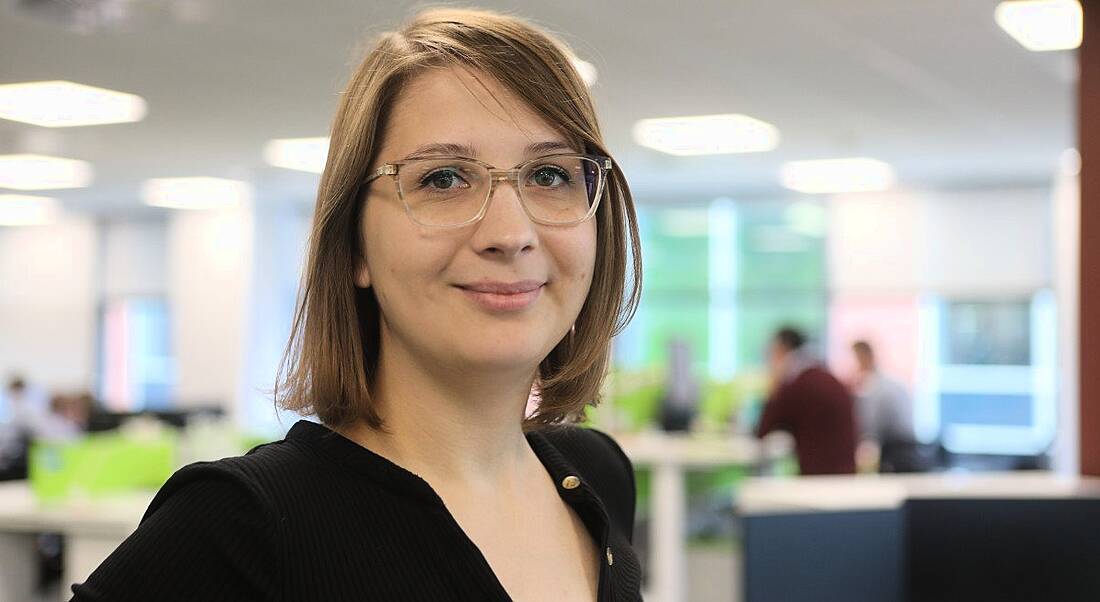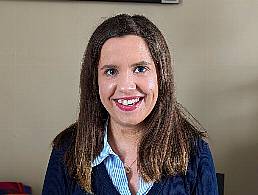Weronika Falkowska, a software developer at Genomics Medicine Ireland, discusses the realities of the diversity issues still present in STEM.
Although Weronika Falkowska, a senior software developer at Genomics Medicine Ireland, has had the privilege of working in mostly prejudice-free environments, the reality is that most STEM fields are still male-dominated.
Here, Falkowska explains the finer details of her career and how she developed an interest in software development, as well as touching upon the reality of diversity issues that still somewhat plague her sector.
What drew you to a career in software development?
I was one of those kids that found themselves to be good at maths and then IT classes when I was in school. Over time I had naturally gravitated towards software development.
I don’t think there was an ‘aha!’ moment of realisation that this is what I will be doing – I have just found myself years later having already developed skills in the area.
What’s the best thing about working in this area?
Software development is a dynamic and ever-changing field. Each year there are new technologies emerging, equipping developers with a new set of tools to tackle their day-to-day problems. On top of that, we’re working on the very frontier of the new technologies, which is a very exciting place to be.
It is worth mentioning that, as IT underlines a variety of different industries, developers can find opportunities to work in areas that interest them the most – so far I’ve worked in cybersecurity, marketing, fintech and medical.
What’s the most exciting development you’ve witnessed in your sector since you started working in it?
The developments in AI, supported by big data combined with machine learning, seems to be the biggest revolution in infotech in recent years. It seems that it has taken the entire field by storm, fundamentally changing the rules of the game.
Personally, I am most excited about quantum computing and the possibilities that come with it. At this point, I am barely a hobbyist trying to deepen my understanding of this groundbreaking field, but the more I learn about it the more amazed I am.
What aspect of your job did you struggle/have you struggled to get to grips with?
The core of my job is to take on a problem and to deconstruct it into a series of small, logical building blocks that can be easily translated to the simplified and rigid way computers work.
It took me some time to get my head around this. It takes a lot of patience and practice to master this process, but ultimately it is an extremely useful skill. There is no problem too hard to solve – there is just a complexity of the solution that causes issues.
What’s been the hardest thing you’ve had to face in your career, and how did you overcome it?
Over the course of my career, I’ve had the opportunity to work in a variety of different environments. A good majority of those workspaces were fair and prejudice-free, but I would be lying if I didn’t mention the fact that women continue to be treated differently in IT.
It saddens me to admit it, but the IT industry is still a place largely run by men and there’s no place for a woman to make mistakes if she wants to be treated seriously.
Fortunately, this is not something that I face in my current company. As for overcoming the issue – IT is a very dynamic industry and the situation is changing rapidly as more and more men and women speak up about equality. I am positive that the new generation of developers will put an end to issues of this sort.
If you had the power to change anything within the STEM sector, what would that be?
I would really like to see more things being made open source, free to use and to contribute to for everybody and everywhere. Creative Commons licences are an immense help for new developers and start-ups.
Which of your personality traits makes you best suited to your job and this sector?
I think that patience and persistence is what helped me to build my career. Development is often tedious and repetitive, and you have to initially put in a lot of effort to stick to it. Over time, all the effort spent is well worth it.
There is a great sense of accomplishment when you finally solve a particularly pesky problem, or when see your work being appreciated and enjoyed by others.
Is there something in your personal life that helps you/has helped you in your job at Genomics Medicine Ireland?
I am lucky to have a partner who’s a coach, so I can always ask for advice with any ‘soft skills’ that might be my shortcomings.
How do you make connections with others in the STEM community?
I think that, as in any other field, there is a shared sense of community and cooperation in IT, which makes it easy to start a conversation with other professionals in the field.
Has mentorship or coaching been important in your career?
I’ve never really had a mentor. I think I would definitely benefit from one, but that’s just not how my career rolled out. When I was perhaps in the most need of coaching was when I was working in a busy media agency – there was no time to be spent on tutoring others. To keep up I needed to fill the gaps online.
Fortunately, I’ve found that there is a vast number of tools accessible to newbies in the field, as well as a thriving online community.
What advice would you give to someone thinking about a career in software development?
It takes time to understand the principles behind software development. It can be a frustrating journey, as there is a multitude of acceptable ways to solve any given problem, but you can give it a try without risking anything.
Learn from the comfort of your home – and there are many platforms that can offer you that, most of them with wonderful online communities of people who are happy to help should you struggle with any particular problem.




